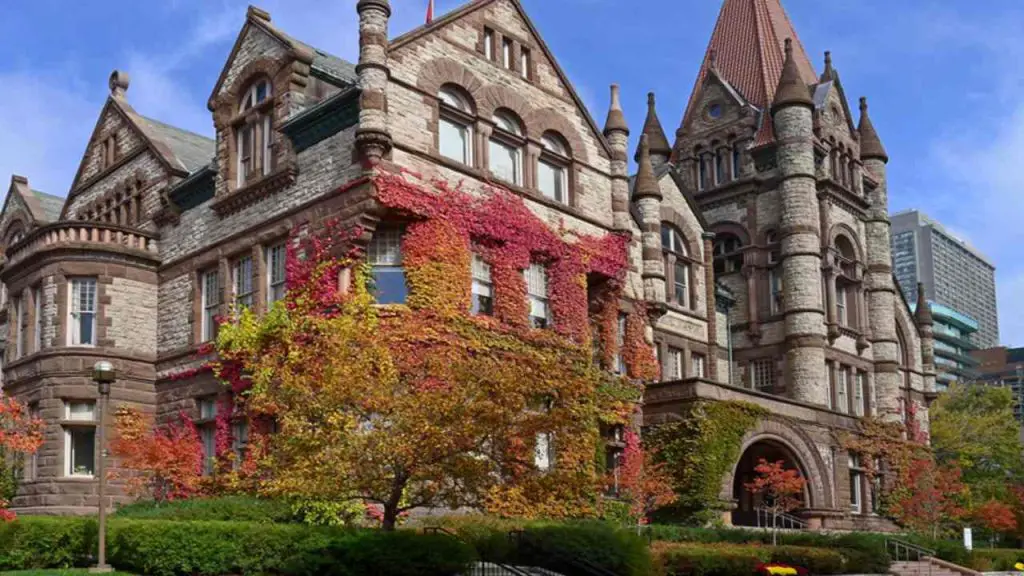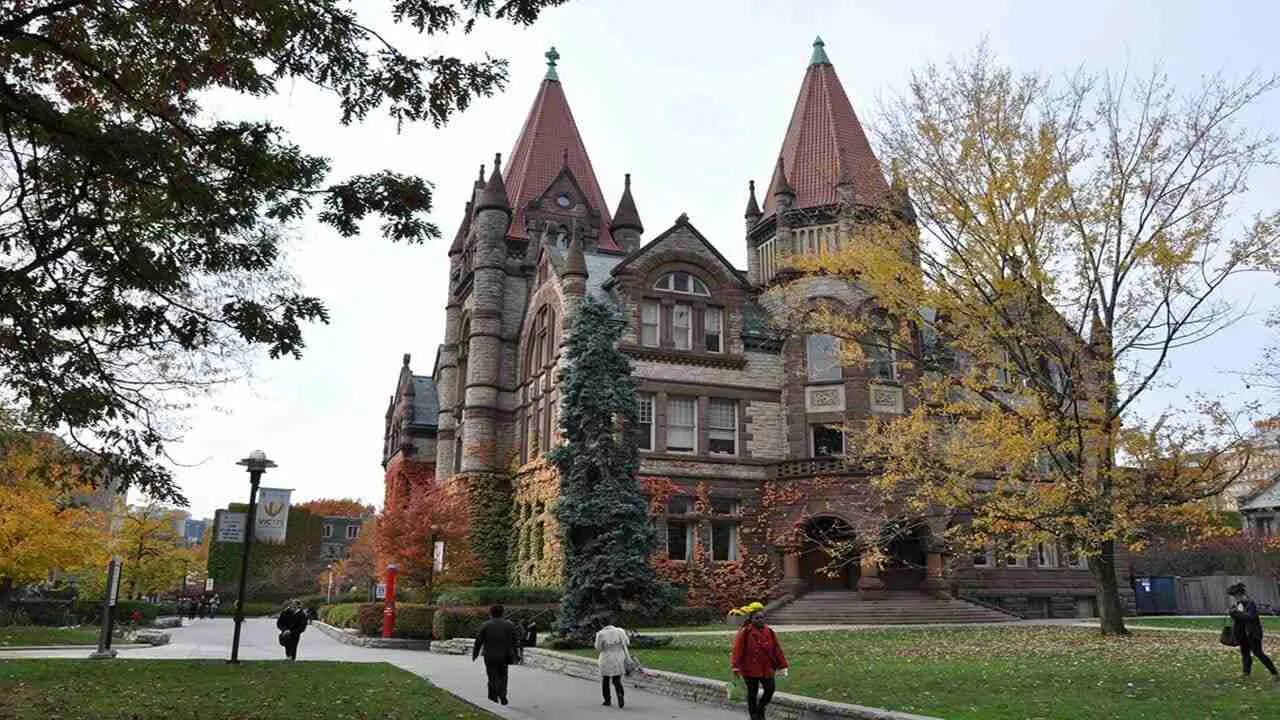Studying abroad can be an enriching experience for any student, and Canada is an excellent destination for international students. With its high-quality education, friendly people, and diverse culture, Canada has become a top choice for students from around the world. In this article, we will provide a comprehensive guide to studying in Canada as an international student, including tips and resources to help you navigate the process.
Additionally, we will discuss some of the best colleges in Canada for international students and provide an overview of each institution, highlighting its history, location, campus culture, and notable faculty, as well as the unique benefits and infrastructure offered by each institution.
Why study in Canada?
Canada has an excellent reputation for providing high-quality education, and its colleges and universities are ranked among the best in the world. Canada offers a welcoming and inclusive culture, making it a great place for international students to live and study.
Additionally, studying in Canada offers international students opportunities to explore the country’s natural beauty, diverse cities, and rich history.
Requirements for studying in Canada
To study in Canada as an international student, you will need to meet certain requirements. These include academic requirements, language proficiency requirements, and visa and immigration requirements. Academic requirements vary depending on the institution and program you are interested in.
Generally, you will need to provide transcripts or certificates from your previous educational institutions, demonstrate proficiency in the language of instruction, and meet specific program requirements. Language proficiency can be demonstrated through language tests such as IELTS or TOEFL. Visa and immigration requirements include obtaining a study permit and meeting the eligibility criteria set by the Canadian government.
Finding the right college or university in Canada
Canada offers a wide range of colleges and universities, and it can be challenging to choose the right one. When selecting a college or university, it is essential to consider factors such as program offerings, location, campus culture, and tuition fees. Researching and visiting potential institutions can help you make an informed decision.
Some of the best colleges in Canada for international students

1. University of Toronto
The University of Toronto is an internationally acclaimed institution, which is consistently recognized as one of the top universities in Canada and around the world. Located in Toronto, the largest city in Canada, the university boasts a vibrant and inclusive campus culture that embraces diversity. The University of Toronto offers a broad spectrum of undergraduate and graduate programs, including coveted professional programs like law, medicine, and engineering.
The university’s notable faculty includes Nobel laureates, Rhodes Scholars, and Canadian prime ministers. The university offers various benefits and infrastructure, including a range of research opportunities, international study programs, and an extensive library system.
2. University of British Columbia
The University of British Columbia is a top-ranked research institution located in Vancouver, one of the most vibrant and diverse cities in Canada. The university provides a diverse array of educational opportunities, both for undergraduate and graduate studies, across numerous fields such as science, engineering, business, and the arts.
The University of British Columbia boasts exceptional faculty members, including Nobel laureates, Rhodes Scholars, and Order of Canada recipients. In addition, the university offers several unique benefits and facilities, such as research opportunities, an extensive co-op program, and an exceptional museum of anthropology that is among the best in the world.
3. McGill University
McGill University, situated in Montreal, Quebec, is a renowned public research university in Canada. The university is highly regarded and recognized as one of the best universities in the country, providing a diverse range of undergraduate and graduate programs across a broad range of fields, such as science, engineering, business, and the arts.
McGill University is proud to have accomplished faculty members, including Nobel laureates, Rhodes Scholars, and members of the Royal Society of Canada. The university’s infrastructure is exceptional, offering research opportunities, a keen focus on innovation and entrepreneurship, and a vibrant sense of community and campus culture that sets it apart.
4. University of Alberta
The University of Alberta, located in the capital city of Alberta, Edmonton, is a leading research institution and is highly regarded as one of the top-ranked universities in Canada. The university provides undergraduate and graduate programs in a variety of disciplines, including science, engineering, business, and the arts.
The faculty at the University of Alberta consists of distinguished individuals such as Nobel prize winners, Order of Canada recipients, and members of the Royal Society of Canada. Moreover, the university has a reputation for providing excellent research opportunities, an extensive co-op program, and a strong focus on entrepreneurship, which makes it stand out among other institutions.
5. University of Waterloo
The University of Waterloo, located in Waterloo, Ontario, is a well-known research institution. The university offers undergraduate and graduate programs in a variety of fields such as science, engineering, mathematics, and business. The faculty at the University of Waterloo comprises esteemed individuals like Rhodes Scholars, Canadian Research Chairs, and members of the Royal Society of Canada.
Additionally, the university’s focus on entrepreneurship, extensive research opportunities, and a co-op program that enables students to gain practical work experience while studying are among the institution’s exceptional features and infrastructure.
6. University of Victoria
The University of Victoria, located in Victoria, British Columbia, is a public research university with a diverse range of undergraduate and graduate programs in social sciences, humanities, science, engineering, and business.
The university boasts over 22,000 students and is recognized for its interdisciplinary approach and commitment to sustainability. Distinguished faculty members include anthropologist and Canada Research Chair Brian Thom, historian, and author John Lutz, and physicist and Canada Research Chair Reiner Kruecken.
The University of Victoria is also dedicated to supporting international students, providing English language assistance, cultural events, and academic advising. Moreover, the university’s breathtaking oceanfront campus is renowned for its stunning natural surroundings and cultural heritage.
7. Simon Fraser University
Simon Fraser University (SFU) is a public research university located in Burnaby, British Columbia. The university has a reputation for academic excellence and innovation, with over 35,000 students enrolled in various undergraduate and graduate programs in fields such as business, engineering, social sciences, and health sciences.
The faculty comprises renowned scholars such as sociologist John W. Warnock, physicist Andrea Damascelli, and historian Lisa Marr, who are experts in their fields. SFU is also recognized for its commitment to sustainability and offers various initiatives and programs that promote environmental responsibility and social justice.
Applying to colleges and universities in Canada
1. Application process and requirements
The application process for colleges and universities in Canada can vary, but typically includes submitting academic transcripts, standardized test scores, and a personal statement or essay.
International students may also need to provide proof of English proficiency, such as a TOEFL or IELTS score. It is important to carefully review the application requirements and deadlines for each institution, as they may differ.
2. Tips for a successful application
To increase the chances of a successful application, international students should focus on their academic achievements and extracurricular activities. It is important to demonstrate a well-rounded profile, showcasing not only academic excellence but also leadership, community involvement, and other skills. Applicants should also carefully review the application instructions and provide all necessary documentation.
3. Resources for application support
Many colleges and universities in Canada offer resources for application support, including guidance on the application process, essay writing workshops, and admission consultations.
Students can also seek guidance from education agents or consultants, who can provide assistance with the application process and help match students with suitable institutions.
Financing your education
1. Tuition fees and other costs
Tuition fees and other costs for international students in Canada can vary depending on the institution and program of study. It is important to carefully review the costs associated with attending each institution and factor in additional costs such as housing, food, and transportation.
2. Scholarships, grants, and other financial aid options
There are many scholarships and grants available to international students studying in Canada. These include merit-based scholarships, need-based scholarships, and scholarships for specific programs of study. Students can also explore other financial aid options such as student loans and bursaries.
3. Work-study programs and other part-time work opportunities
Many institutions in Canada offer work-study programs, which allow students to work part-time on campus while studying. International students can also seek part-time work opportunities off-campus, which can provide valuable work experience and help offset the cost of living expenses.
Preparing for life in Canada
To better prepare for life in Canada, international students should learn about Canadian culture and customs, including values, social norms, and customs like tipping, greeting etiquette, and holidays. International students can choose from different housing options such as on-campus dorms, off-campus apartments, or homestays. Researching housing options in advance and factoring in costs and location is crucial.
Health insurance is mandatory for international students in Canada. Institutions may offer health insurance plans, or students may need to obtain their own coverage. International students should also familiarize themselves with essential services such as transportation, banking, and emergency services.
Conclusion
In conclusion, pursuing higher education in Canada as an international student can be a fulfilling and meaningful experience, but it is important to consider various factors, such as the admission process, financing options, and cultural differences. Canada offers a world-class education system, a diverse and welcoming society, and numerous opportunities for personal and professional development.
Additionally, international students can avail themselves of various resources, including financial aid and scholarships, academic support services, and integration programs. I hope that this article has provided you with valuable insights and aided you in making an informed decision about studying in Canada.
Additional Posts:

